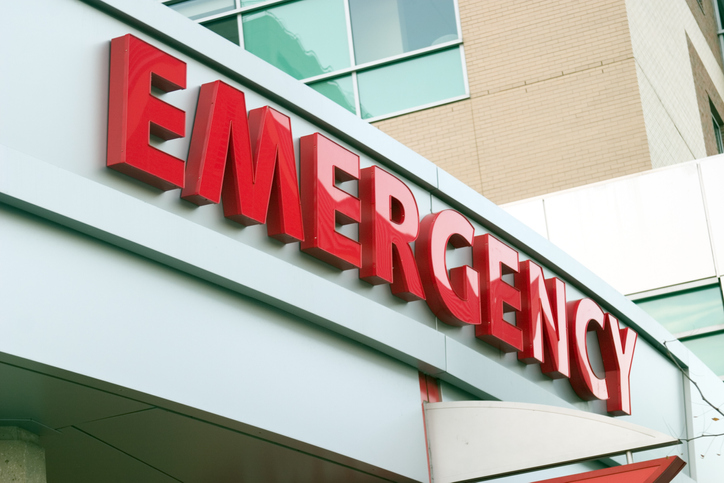
Though mass shootings have been an ongoing issue in the U.S. for decades, the number of these shocking and tragic events has been rising in recent years — mass shootings increased by nearly 40% from 2019 to 2021. So far this year, 356 mass shootings have occurred across the country.
These frequent calamities cause an influx of patients with traumatic and life-threatening injuries to flood emergency departments. Yet hospitals do not have a comprehensive system that can prepare clinicians to treat these victims, according to the authors of a new research article published in the Journal of the American College of Surgeons. In the article, they offered eight recommendations to help hospitals respond appropriately.
The authors are EMS clinicians, emergency physicians and surgeons who responded to six recent mass shootings. They treated victims involved in mass shootings that took place in the following places: Orlando, Florida (2016); Las Vegas (2017); Sutherland Springs, Texas (2017); Parkland, Florida (2018); El Paso, Texas (2019); and Dayton, Ohio (2019).
Take readiness training seriously
Through their first recommendation, the authors suggested hospitals hold regular, multi-domain training sessions that mirror the realism of an actual mass shooting event.
Educate the public

A Deep-dive Into Specialty Pharma
A specialty drug is a class of prescription medications used to treat complex, chronic or rare medical conditions. Although this classification was originally intended to define the treatment of rare, also termed “orphan” diseases, affecting fewer than 200,000 people in the US, more recently, specialty drugs have emerged as the cornerstone of treatment for chronic and complex diseases such as cancer, autoimmune conditions, diabetes, hepatitis C, and HIV/AIDS.
Hospitals should also educate their communities about how to respond to mass shootings, the authors exhorted. This could mean providing the public with educational materials about how to apply a tourniquet to stop a shooting victim’s bleeding or teaching the public which local hospitals are trauma centers so they know where to transport victims.
Triage quickly and continuously
The article asserted that the triage process should “start at the mass shooting incident and then recur serially,” meaning that clinicians should continually assess which patients are in the most critical condition so they can appropriately prioritize operative care.
Develop a communication plan
Hospitals should develop a plan for their clinicians to directly communicate with medics at the scene of a mass shooting, the article noted. Authors pointed out that when dealing with the fallout from their respective mass shooting incidents, they had to bypass formal communication channels and use cell phones to facilitate successful patient care handoffs.
Improve patient tracking
Patient tracking is another important consideration. Current patient tracking systems are cumbersome and often require several different patient identifications across prehospital, hospital and interhospital transfers, according to the authors. They recommended a national tracking mechanism, such a standardized barcode or QR code, that can be used from the point of injury throughout the care continuum of care.
Ditch the EHR
The clinicians declared that EHRs become too unwieldy during a mass shooting response. Instead, hospitals should pivot to low-tech alternatives during these events, such as paper charts or note taking apps that allow for rapid bedside documentation, they suggested.
Establish a separate contact site
The authors also pointed out that the volume of mass shooting victims’ family members quickly overwhelms hospitals’ normal mechanisms to support them. They said hospitals should establish a mass gathering site, such as a convention center near the incident site, to notify where their loved ones may be getting treated and give them helpline phone numbers. These family support resources should also be broadcasted through social and mass media.
Prioritize mental health treatment
The last recommendation is for hospitals to provide the clinicians who respond to mass shooting events with mental health services. These services should be deployed rapidly, and they should involve group sessions organized by the type of care the clinicians provided, such as sessions involving clinicians who provided care on-site or sessions for communication specialists who fielded phone calls to the hospital during the day of the mass shooting.
Dr. Deborah Kuhls, one of the authors and a surgeon who responded to the 2017 mass shooting in Las Vegas, pointed out that while mass shootings make up a small percentage of annual firearm fatalities in the U.S., they are “horrific events” most hospitals are not prepared for, even though they are becoming more common.
Dr. Kuhls also said it is important that clinicians like herself make their voices heard so that policymakers and community members understand what a huge public health issue gun violence is.
“Across all dimensions — healthcare professionals, hospitals, professional organizations — we all really understand what a huge public health and medical problem exists in our country,” she said.
Photo: pablohart, Getty Images













